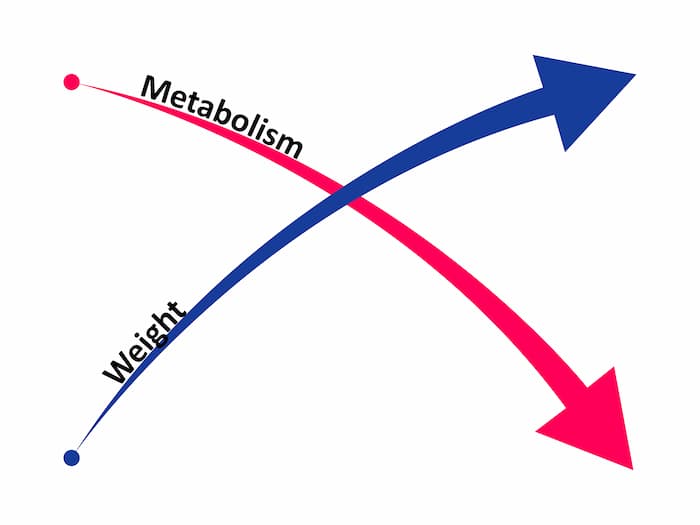The mysteries of the human body never cease to amaze. From our youthful days filled with energy to the more reflective periods of our older years, the body goes through a plethora of changes, both visible and invisible. One of the subtler transformations, yet significant in its impact, is how our metabolism operates and the all-encompassing effects it has on our health.
Many of us, as we grow older, grapple with the question: “Why is it harder to maintain or lose weight even though my eating habits haven’t changed?” One of the primary reasons behind this is the slowing down of your metabolism. But what exactly causes this change in our metabolic rate? In today’s blog post, our experts in functional medicine in Los Angeles will look into the 10 reasons metabolism tends to decline as we grow older
What causes the metabolism to slow down with age?
1. Loss of muscle mass
One of the most significant reasons for a declining metabolic rate is the natural loss of muscle mass that occurs as we age. Muscle is metabolically active, meaning it requires energy to maintain, even at rest. Thus, the more muscle we lose, the fewer calories our bodies burn.
2. Hormonal changes
Aging is often accompanied by a decrease in certain hormones, like testosterone in men and estrogen in women, which play roles in muscle maintenance and fat storage. A drop in these hormones can lead to a reduced metabolic rate.
3. Decreased activity levels
As we age, it’s common to become less active. Whether due to health issues, lifestyle changes, or decreased energy levels, reduced physical activity means fewer calories burned. Incorporating even small amounts of regular physical activity can make a difference in counteracting this decline.
4. Thyroid function
The thyroid gland regulates our body’s energy usage. Over time, issues like hypothyroidism can develop, slowing down the metabolism. Regular check-ups can help detect any thyroid irregularities early, offering a chance for timely intervention.
5. Nutritional deficiencies
Absorption of some essential nutrients can decrease with age, potentially impacting the metabolism. For instance, a deficiency in vitamin B12 can reduce energy levels and metabolic function.
6. Reduced caloric needs
As our metabolic rate decreases, so do our caloric needs. This can create a vicious cycle: as we consume the same number of calories we did when we were younger, we might gain weight, leading to a further reduction in metabolism.
7. Change in gut bacteria
Recent research indicates that the microbiome or gut bacteria can influence metabolic rates. As we age, changes in our gut bacteria composition might impact our metabolism. A balanced diet rich in fiber and fermented foods can help maintain a healthy gut microbiome.
8. Insulin resistance
Older adults have a higher risk of developing insulin resistance, where the body’s cells no longer respond to insulin as efficiently. This can lead to higher blood sugar levels and a slower metabolism.
9. Stress and sleep patterns
Chronic stress and disrupted sleep patterns, both of which become more common with age, have been linked to metabolic disturbances. Prioritizing mental well-being and sleep hygiene can be instrumental in supporting a healthier metabolism.
10. Genetics
Just as some people are genetically predisposed to have a faster metabolism, others might experience a more pronounced metabolic decline with age due to their genetic makeup. While genetics play a role, lifestyle choices can still have a substantial impact on our metabolic health.
How can I get in touch with the leading specialists in functional medicine in Los Angeles?
While it’s true that our metabolism tends to slow down as we age, understanding the reasons behind it can help us take proactive measures. And remember, while a slower metabolism might be a natural part of aging, it doesn’t mean we can’t stay healthy, active, and vibrant at any age.
If you want to learn about the relationship between inflammation and weight gain, find out why fasting is an important part of a healthy routine, or how to prevent the slowing down of your metabolism, reach out to us at 562-789-1588.
Whether you’re located in the city center near LACMA or the suburbs, we’ll offer a comprehensive consultation via webcam or phone. Call us today and let Dr. Jamie guide you on your decisive path toward optimal well-being!


